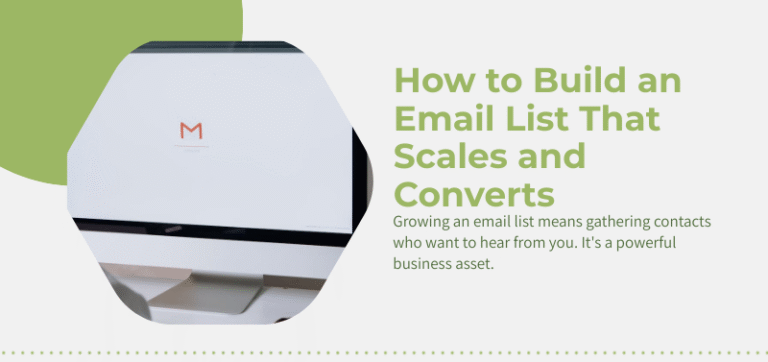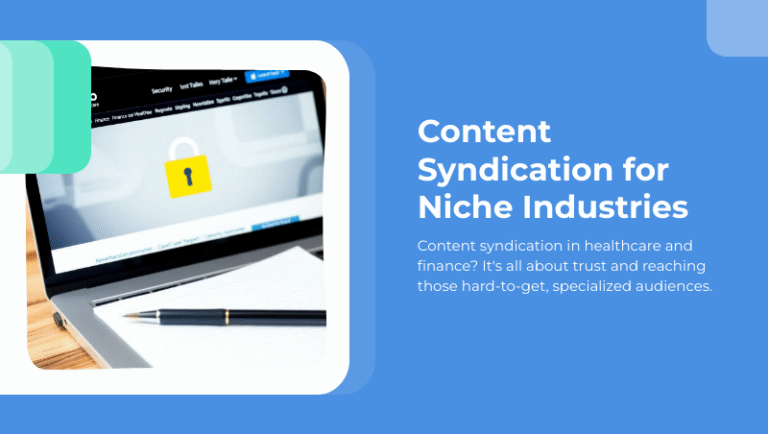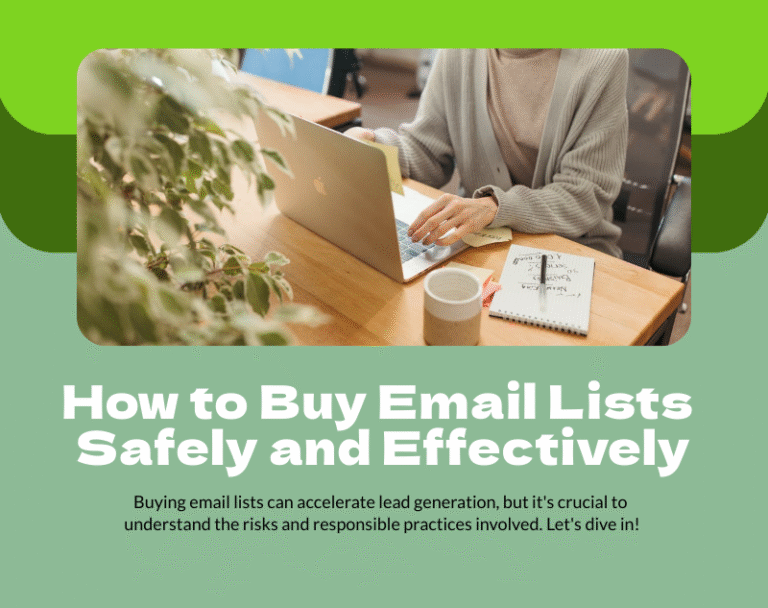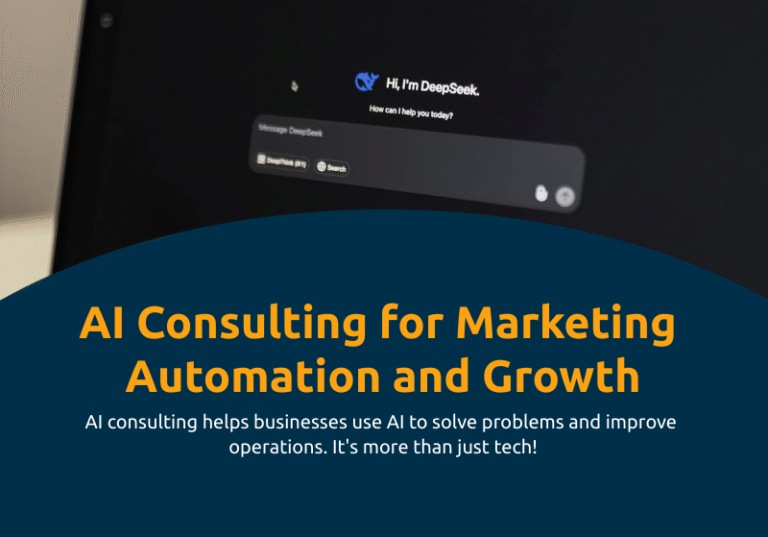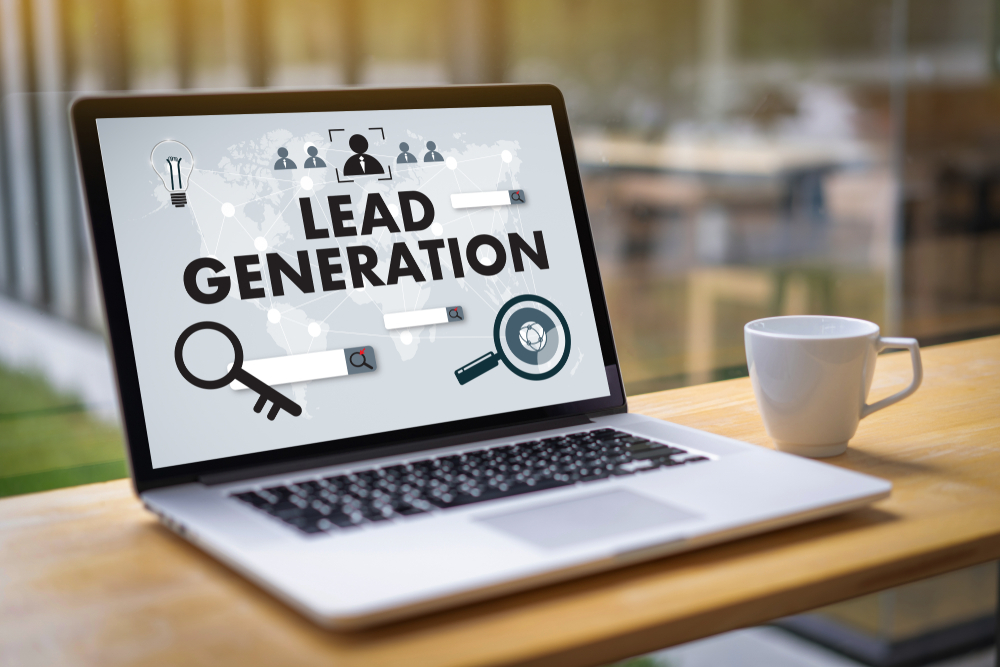

As B2B buyers become more discerning and research-driven, companies need to leverage advanced tools and strategies to capture the attention of their target audience. One of the most effective ways to transform your lead generation efforts is by integrating AI-driven personalization and automation into your B2B marketing approach.
Artificial intelligence (AI) is revolutionizing how B2B companies handle lead generation by enhancing personalization, optimizing campaign performance, and automating repetitive tasks. This approach not only improves efficiency but also delivers a highly customized experience to potential clients.
The Evolution of B2B Lead Generation
Before diving into the specifics of AI and automation, it’s crucial to understand the shifts in B2B lead generation over the years. In the past, cold calls, trade shows, and email blasts were the primary methods used by B2B companies to connect with potential clients. However, today’s business decision-makers are looking for deeper, more meaningful engagement. As digital tools have evolved, so too have the expectations of B2B buyers.
- Data-driven decisions are now at the forefront of any successful lead generation strategy. Businesses use data to understand buyer behavior, predict needs, and tailor marketing efforts.
- Automation and technology have taken center stage, enabling companies to handle large volumes of prospects efficiently.
- Personalization has become essential in cutting through the noise. Buyers expect content, messages, and offers that are relevant to their unique needs.
These changes have set the stage for AI-driven personalization and automation to thrive in the B2B space.
What is AI-Driven Personalization in B2B Marketing?
AI-driven personalization refers to the use of machine learning and data analysis to tailor marketing content, messages, and offers to individual prospects or segmented audiences. Unlike manual personalization, AI processes massive amounts of data in real-time to create highly relevant interactions, boosting engagement and increasing the chances of converting leads into clients.
Here’s how AI-driven personalization works:
- Data Collection and Analysis: AI tools gather data from multiple touchpoints, including websites, social media, and CRM systems. This data includes browsing history, company size, purchase behavior, and more.
- Customer Segmentation: AI algorithms analyze the data and group prospects into different segments based on their behavior, needs, and preferences.
- Content Personalization: Personalized content—such as emails, product recommendations, or case studies—is automatically generated and delivered to each segment at the right time.
- Predictive Insights: AI tools predict which leads are most likely to convert, allowing marketers to prioritize high-value prospects.
The Role of AI in Predictive Lead Scoring
One of the most powerful applications of AI in B2B lead generation is predictive lead scoring. Predictive lead scoring uses AI algorithms to assess the likelihood that a lead will become a paying customer. By analyzing historical data and identifying key attributes of successful leads, AI systems can assign scores to new leads based on their potential value.
With predictive lead scoring, B2B companies can focus their efforts on the most promising leads, leading to more efficient use of resources and higher conversion rates.
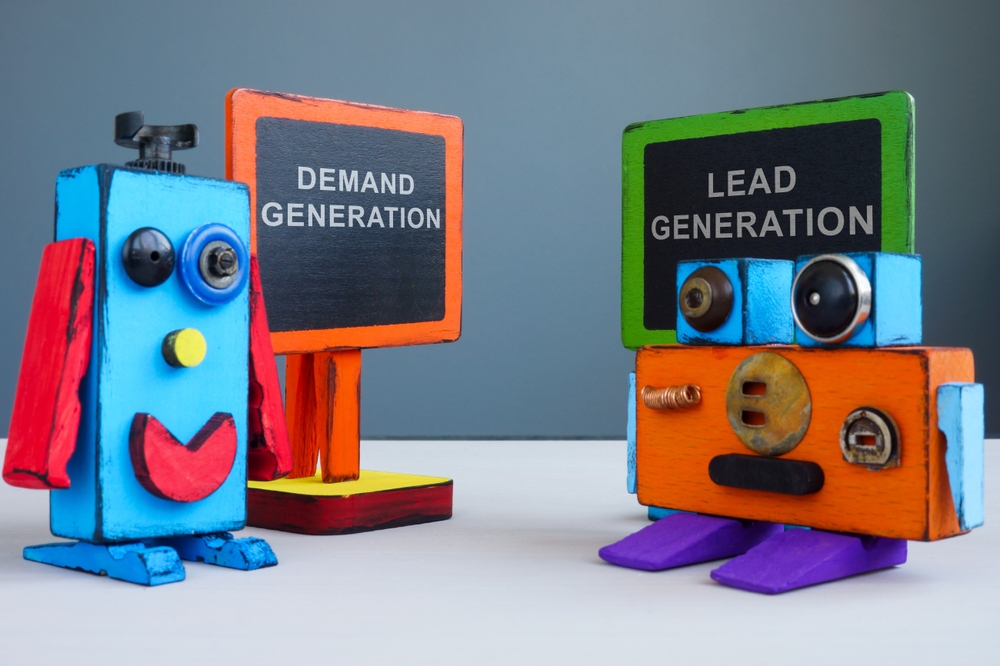
The Benefits of AI-Driven Personalization for B2B Companies
Integrating AI-driven personalization into your lead generation strategy offers several key advantages:
1. Enhanced Targeting and Relevance
AI-driven personalization allows B2B marketers to create hyper-targeted campaigns that speak directly to the needs of individual prospects. Instead of sending generic messages, marketers can deliver tailored content that resonates with the recipient, increasing the likelihood of engagement.
2. Improved Lead Nurturing
AI-powered systems can automatically adjust the frequency and content of communications based on a prospect’s engagement. For instance, if a lead downloads a white paper, the system can follow up with personalized recommendations or case studies that align with their interests.
3. Increased Efficiency
Automation combined with AI frees up valuable time for marketing teams. Rather than manually sifting through leads and crafting personalized messages, AI tools handle these tasks at scale, allowing teams to focus on higher-level strategy and creative work.
4. Higher Conversion Rates
By delivering highly relevant content at the right time, AI-driven personalization can significantly boost conversion rates. Prospects who feel that their needs are being understood and addressed are more likely to engage and move down the sales funnel.
The Power of Automation in B2B Lead Generation
Automation goes hand-in-hand with AI in B2B marketing. While AI powers personalization and decision-making, automation ensures that the processes are executed efficiently. Automation tools manage tasks such as email marketing, social media posting, and customer follow-up, making it easier to nurture leads at scale.
Here are a few ways automation improves B2B lead generation:
1. Automated Lead Nurturing
One of the most time-consuming aspects of lead generation is nurturing leads until they’re ready to make a purchase. Automation tools simplify this by setting up email sequences and workflows that guide leads through the buyer’s journey. Once a lead takes a specific action—such as visiting a product page or downloading a resource—the automation system sends a tailored follow-up email, keeping the prospect engaged without the need for manual intervention.
2. Chatbots and Virtual Assistants
AI-powered chatbots and virtual assistants are becoming increasingly common in B2B lead generation. These tools can handle initial inquiries, qualify leads, and even schedule appointments, making the lead generation process more efficient. Chatbots work around the clock, ensuring that potential clients always have a point of contact, even outside of business hours.
3. CRM Integration
Automation tools integrate seamlessly with Customer Relationship Management (CRM) systems, ensuring that data is synchronized and up-to-date. This integration allows sales and marketing teams to have a clear view of lead activity, making it easier to identify high-value prospects and follow up at the right time.
How AI-Driven Automation Improves Sales and Marketing Alignment
One of the long-standing challenges in B2B companies is aligning sales and marketing efforts. Misalignment between these two teams can lead to lost leads, wasted resources, and missed opportunities. However, AI-driven automation can bridge this gap by improving communication and collaboration.
- Lead Handoff: AI systems ensure that leads are passed to the sales team at the optimal time—when they’re warm and ready to engage. This reduces the chances of leads falling through the cracks.
- Real-Time Reporting: Automation tools provide real-time data on lead behavior, campaign performance, and ROI. This transparency helps sales and marketing teams make data-driven decisions and adjust strategies on the fly.
- Campaign Optimization: AI continuously learns from lead behavior and campaign performance, optimizing marketing efforts in real-time. Marketing teams can adjust messaging, timing, and channels based on AI insights, while sales teams can focus their efforts on leads that are more likely to convert.
Key Tools for AI-Driven Personalization and Automation in B2B Marketing
Several AI and automation tools are available to B2B companies looking to enhance their lead generation efforts. Here are a few of the most effective:
1. HubSpot
HubSpot is a powerful all-in-one marketing automation platform that provides AI-driven lead scoring, email marketing, and CRM integration. Its robust AI capabilities allow businesses to automate personalized email sequences, optimize workflows, and track lead engagement in real-time.
2. Marketo Engage
Marketo Engage, part of the Adobe Experience Cloud, is a leading platform for B2B companies looking to scale their marketing efforts. It offers AI-powered predictive analytics, personalized marketing automation, and advanced CRM integration, making it easier to target high-value prospects.
3. Salesforce Pardot
Pardot, Salesforce’s B2B marketing automation solution, enables businesses to automate lead nurturing, email marketing, and reporting. Its AI-driven features, such as Einstein Lead Scoring, use machine learning to analyze leads and prioritize those most likely to convert.
4. Drift
Drift is a conversational marketing platform that uses AI-powered chatbots to engage website visitors in real-time. It helps B2B companies qualify leads, book meetings, and provide personalized experiences without human intervention.

Overcoming Common Challenges with AI-Driven Personalization and Automation in B2B Marketing
While AI-driven personalization and automation offer numerous benefits for B2B lead generation, implementing these technologies is not without its challenges. B2B companies must navigate a few hurdles to ensure that they fully capitalize on these tools and strategies. Below, we explore some of the common obstacles businesses may face and how to overcome them.
1. Data Silos and Integration Issues
One of the biggest challenges for companies implementing AI and automation is managing and integrating vast amounts of data. B2B businesses often have data scattered across multiple platforms—CRM systems, marketing automation tools, sales databases, and customer support systems. When these systems don’t communicate with each other, it creates data silos, making it difficult for AI tools to access the information needed to personalize marketing efforts effectively.
How to Overcome It:
- Invest in Integrated Platforms: Choose tools and platforms that integrate seamlessly with your existing systems. Many AI-driven marketing and CRM tools are designed to work together, ensuring that data flows smoothly across all departments.
- Centralize Data in the Cloud: Moving data storage to the cloud can help break down silos by giving AI tools access to all relevant information, regardless of its origin. This also enhances collaboration between marketing, sales, and customer service teams.
- Clean and Standardize Data: AI relies heavily on the quality of the data it processes. Ensure that your data is accurate, up-to-date, and standardized across all platforms. Regular audits can help identify inconsistencies or outdated information.
2. The Learning Curve for AI Implementation
AI and automation technologies are complex, and companies may face a steep learning curve when trying to implement them. B2B marketing teams, especially those used to traditional methods, may struggle to understand how to effectively utilize AI to achieve their goals. Additionally, technical expertise may be required to set up and maintain these systems.
How to Overcome It:
- Invest in Training: Provide comprehensive training for your marketing and sales teams so they can fully understand the capabilities of AI tools. This training should cover everything from data analysis to setting up automation workflows.
- Partner with Experts: If you lack in-house expertise, consider partnering with external consultants or agencies that specialize in AI-driven marketing. These experts can help set up the necessary infrastructure and offer ongoing support to ensure smooth implementation.
- Start Small and Scale Gradually: Rather than trying to implement AI across all your operations at once, start with small, manageable projects. This allows teams to get comfortable with the technology and see tangible results before scaling up to larger initiatives.
3. Maintaining Human Touch in Automation
One of the concerns often raised about AI and automation is the potential loss of the human touch in B2B marketing. While automation can streamline processes and increase efficiency, it’s important to ensure that personalized communication doesn’t feel robotic or impersonal. B2B buyers still expect a level of human interaction, especially when making significant purchasing decisions.
How to Overcome It:
- Blend AI with Human Oversight: While AI can handle much of the heavy lifting, human marketers should still oversee critical interactions. For example, sales teams can step in once AI has qualified a lead, ensuring that the handoff between automation and human engagement is seamless.
- Use AI to Enhance Human Efforts, Not Replace Them: AI should be seen as a tool to support human marketers, not a replacement for them. By automating repetitive tasks, AI frees up marketers to focus on relationship-building and creative problem-solving.
- Craft Personalized Messages with Human Input: Even though AI can generate personalized content, it’s important to have human oversight to ensure that the tone and messaging align with your brand’s voice. AI-driven content should be reviewed and fine-tuned by marketers before being sent to prospects.
4. Cost and Resource Allocation
The implementation of AI-driven personalization and automation tools can be costly, especially for small and medium-sized B2B businesses. Between software subscriptions, system integration, and ongoing maintenance, the expenses can add up quickly. Additionally, companies need to allocate sufficient resources—both in terms of time and manpower—to ensure the successful deployment of these technologies.
How to Overcome It:
- Prioritize High-Impact Tools: Focus on AI tools that offer the highest return on investment (ROI). For example, predictive lead scoring, email automation, and chatbots tend to provide immediate and measurable benefits. By focusing on these high-impact areas, you can make the most of your AI investment without overspending.
- Leverage Freemium Models: Many AI-driven marketing tools offer freemium or trial versions, allowing businesses to test the platform before committing to a paid plan. This can help you evaluate whether the tool is the right fit for your needs.
- Measure ROI Continuously: Once you implement AI-driven tools, regularly measure their impact on your lead generation and sales processes. If certain tools or strategies aren’t delivering results, reallocate resources to the areas that show the most promise.
The Role of AI in Content Creation and Distribution
Another significant aspect of AI-driven personalization and automation in B2B marketing is content creation and distribution. AI tools can help marketers produce more relevant, high-quality content tailored to specific audiences, while also automating its distribution across multiple channels.
1. Automated Content Creation
AI can assist in content creation by analyzing audience behavior, industry trends, and competitive content to suggest topics that resonate with your target audience. While AI may not replace human writers for long-form content, it can assist in creating data-driven blog posts, product descriptions, and even email templates.
2. Personalized Content Distribution
Once content is created, AI can automate its distribution to the right audience at the right time. AI-driven tools analyze audience behavior—such as which content formats and topics they engage with most—and adjust content distribution strategies accordingly. This ensures that prospects receive personalized content through their preferred channels, whether it’s email, social media, or web-based content.
3. Multichannel Automation
AI-powered automation platforms allow B2B companies to deliver consistent, personalized content across multiple channels without requiring manual input. For instance, an AI tool might automatically post relevant blog articles to your LinkedIn account, send personalized email newsletters to segmented lists, and track engagement on your website—all while providing real-time analytics on content performance.
The Future of AI in B2B Marketing
As AI technology continues to evolve, its role in B2B lead generation will only grow stronger. Machine learning algorithms are becoming more sophisticated, allowing for even deeper personalization and more accurate predictions. Here are a few trends to keep an eye on in the coming years:
- Voice Search and AI Assistants: With the rise of voice-activated search tools and AI assistants like Siri and Alexa, B2B marketers will need to optimize their content for voice search queries. AI tools can help companies adapt by analyzing voice search behavior and adjusting keyword strategies accordingly.
- Hyper-Personalization: AI will enable even more granular levels of personalization in the future. Rather than segmenting audiences into broad categories, AI-driven systems will be able to deliver 1:1 personalization at scale, tailoring every interaction to an individual’s specific preferences and behaviors.
- AI-Powered Analytics: Predictive analytics powered by AI will become even more integral to B2B marketing strategies. These systems will provide deeper insights into buyer behavior, helping marketers anticipate trends, fine-tune messaging, and allocate resources more effectively.
AI-driven personalization and automation have revolutionized B2B lead generation by delivering more targeted, efficient, and effective marketing strategies. While challenges such as data integration and the learning curve exist, the potential benefits far outweigh the hurdles. By embracing these technologies, B2B companies can optimize their lead generation efforts, drive higher engagement, and ultimately achieve sustained growth.
